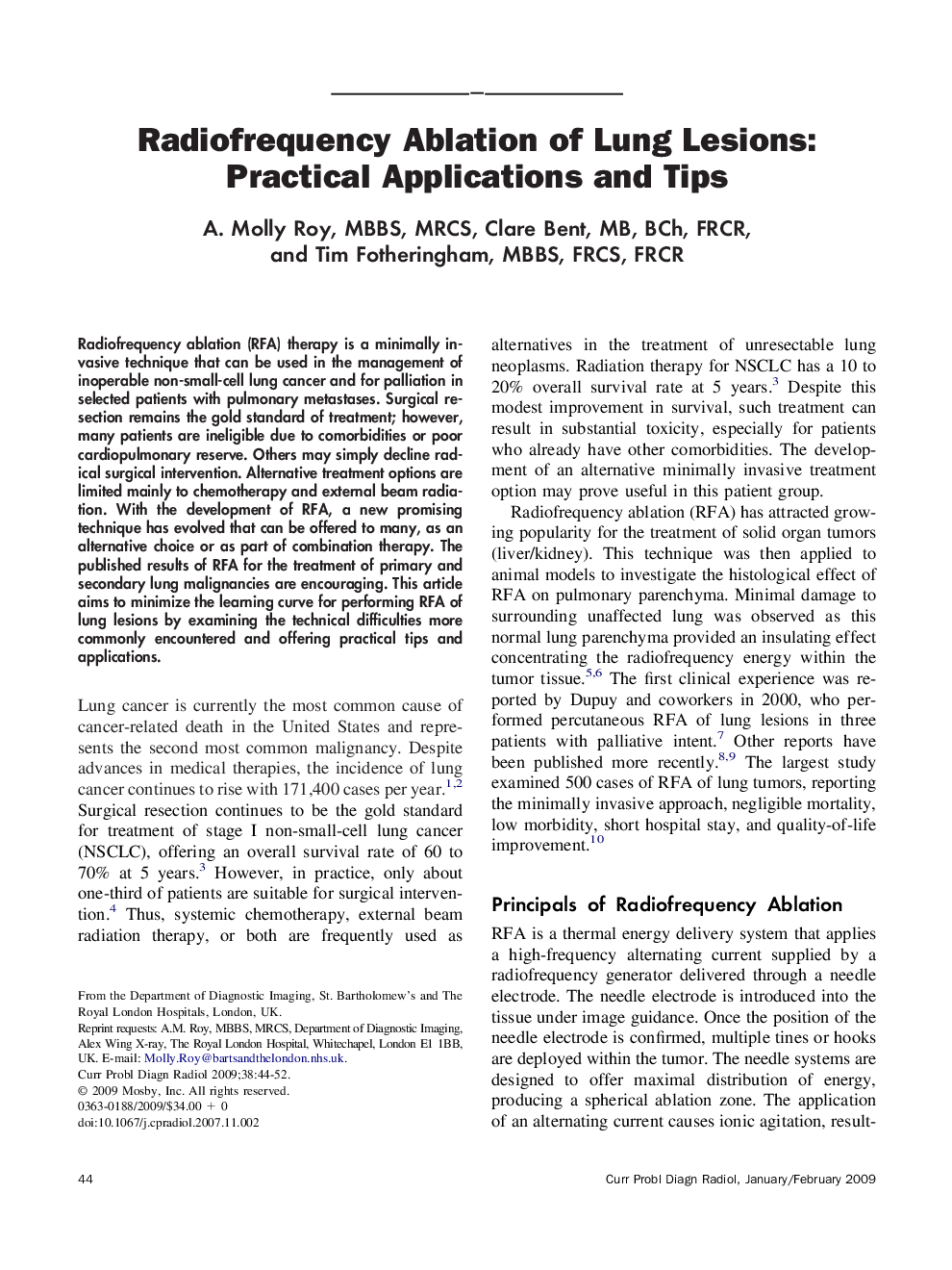| Article ID | Journal | Published Year | Pages | File Type |
|---|---|---|---|---|
| 4223722 | Current Problems in Diagnostic Radiology | 2009 | 9 Pages |
Radiofrequency ablation (RFA) therapy is a minimally invasive technique that can be used in the management of inoperable non-small-cell lung cancer and for palliation in selected patients with pulmonary metastases. Surgical resection remains the gold standard of treatment; however, many patients are ineligible due to comorbidities or poor cardiopulmonary reserve. Others may simply decline radical surgical intervention. Alternative treatment options are limited mainly to chemotherapy and external beam radiation. With the development of RFA, a new promising technique has evolved that can be offered to many, as an alternative choice or as part of combination therapy. The published results of RFA for the treatment of primary and secondary lung malignancies are encouraging. This article aims to minimize the learning curve for performing RFA of lung lesions by examining the technical difficulties more commonly encountered and offering practical tips and applications.
